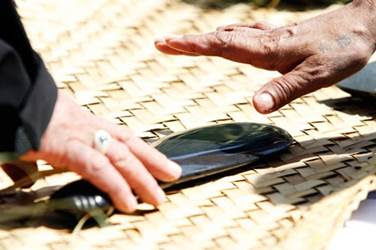BILL ROWLING told New Zealanders that he felt as though he had been run over by a bus. The metaphor was apt. Rob Muldoon’s 1975 electoral victory represented one of the great turnarounds in New Zealand political history. Three years earlier, Labour’s Norman Kirk had sent the National Government of Jack Marshall packing. But, just three years later, Muldoon, Marshall’s populist successor, exactly reversed Kirk’s landslide. National’s majority in the House of Representatives was identical to Labour’s – a whopping 23 seats. New Zealand had voted for the nation they wanted – and Muldoon was determined to give it to them.
It is nearly 50 years since Muldoon’s bus flattened poor Bill Rowling, but, for those with long political memories, the parallels with the election of 2023 are striking. The greatest of these is the profound sense of shock and disorientation among the activist supporters of the Left. Their discomfort is born not only of the brute facts of the election results, but also by the growing realisation that the incoming coalition government is determined to roll back practically all of the Left’s policy advances of the past six years.
Two generations have grown to adulthood since Muldoon’s reactionary political agenda was unleashed upon New Zealand. Young New Zealanders are not accustomed to governments committed to actually dismantling the changes of their predecessors, or, at least, not outside specialist areas such as workplace relations and educational assessment. For citizens under 50, the changes of the last few decades have all been in more-or-less the same direction. Economic policy has been neoliberal. Social policy has been “progressive”. Indigenous policy has been concessionary. Matters may have moved more swiftly under Labour, and slowed down a little under National, but, since 1984, the direction of travel has always been the same – onwards and upwards!
That’s what makes the experience so wrenching for the progressives of 2023. Especially with regard to the one, recurring issue which New Zealanders cannot escape: Race.
It was the National Government led by Jim Bolger that set in motion the Treaty of Waitangi settlement process – ably guided by his Treaty Settlements Minister, Doug Graham – in the early 1990s.
Not to be outdone, Labour, under the leadership of Helen Clark in the early 2000s, launched a policy effort dedicated to “closing the gaps” between Māori and Pakeha. The public backlash created by the policy was hugely strengthened by the Court of Appeal’s surprise affirmation of an enduring Māori proprietary interest in the foreshore and seabed. To keep Labour’s electoral prospects alive, Clark was forced to rein-in Māori expectations dramatically, a move which led to the creation of the Māori Party.
Don Brash, Leader of the Opposition in the run-up to the 2005 General Election, capitalised on the growing public disquiet over ethnic relations by throwing the National Party’s support behind calls for a comprehensive rolling-back of the state’s support for Māori sovereignty.
Brash lost the 2005 election, but only narrowly. “Progressive” New Zealand had been profoundly disturbed by the breadth of support for National’s reactionary policies. Brash, himself, was forced to endure what amounted to excommunication from “polite” political society. His fate was intended to serve as a warning to all serious politicians: mess with Māori (and Te Tiriti) at your peril.
Brash’s successor, National’s John Key, restored his party’s reputation (in the eyes of the political class) by sending the Māori Party’s co-leader, Pita Sharples, to New York to add New Zealand’s signature to the United Nations Declaration of the Rights of Indigenous People.
Labour’s next prime minister, Jacinda Ardern, went one better; commissioning a group of hand-picked “experts” to compile a secret report, He Puapua, setting forth a pathway to the UN Declaration’s full implementation by the 200th anniversary of the Treaty of Waitangi’s signing in 2040. Driven forward by Labour’s radical Māori caucus, Ardern and her Pakeha colleagues felt obligated to support their colleagues’ controversial, Te Tititi-driven constitutional innovation of “co-governance”.
As happened in 2004-05, these bold moves towards Māori sovereignty ignited a Pakeha backlash. In 2023, however, the Left lacked the collective political strength to head-off the forces of reaction.
Across a broad front of social issues, public hostility towards the scope and speed of proposed and/or actual changes neutralised almost entirely the massive support Labour had received in 2020 for its highly successful early handling of the Covid-19 pandemic. Indeed, the psychological and material damage inflicted upon the population by the pandemic, and the measures adopted to contain it, after 2020, contributed significantly to what the Left only belatedly registered as an alarming swing to the Right.
Separated by nearly 50 years from the strikingly similarly political derangement that followed the onset of the global oil crisis in October 1973, the sudden collapse of public trust and confidence in the Labour Government in 2022-23 was experienced by the Left as a Black Swan event of perplexing severity.
Young leftists had read about the swift succession of progressive moves undertaken by Norman Kirk’s Labour Government. The abolition of compulsory military training; the troop withdrawal from Vietnam, the recognition of “Red” China; the sending of a NZ frigate to protest French atmospheric nuclear testing at Mururoa; the cancellation of the 1973 Springbok Tour; the creation of ACC and the NZ Superannuation Fund. This is what Labour was capable of delivering – from the left.
Less well understood were the social dynamics which made it possible for a right-wing politician as shrewd and ruthless as Rob Muldoon to bring about an absolutely catastrophic change in the political climate. In the 15 months following Kirk’s sudden death in August 1974, New Zealanders egalitarian instincts were harnessed to an aggressively populist campaign directed against a Labour Party portrayed as having been taken over by intellectuals and radicals whose values were wildly at odds with those of “the ordinary bloke”. Not only was Muldoon able to present himself as the saviour of the country’s middle-class, but of its working-class as well. National’s slogan: “New Zealand the way YOU want it”, said it all.
Depressing though it is to admit, New Zealanders’ deeply ingrained social conservatism; their fury at any person, or group, who see themselves as being better than everybody else; their unwillingness to tolerate one rule for thee, and another for me; their impatience with intellectuals and artists; their wariness of difference; their hatred of privilege; and their comfort in conformity; remains as powerful today as it was 50 years ago.
Perhaps, not seeing a Muldoon figure looming over the electoral landscape, the Left felt itself to be safe. But, 50 years on from 1974-75, charismatic leadership is no longer strictly necessary. Fifty years on, we have the Internet, social-media, and algorithms. Today, we can manufacture a Muldoon for every taste. A protean Muldoon, who addresses tens-of-thousands of voters every day, with a message cleverly crafted for them alone, and delivered instantaneously through those magic rectangles of glass that never seem to leave the voters’ hands.
The sum total of these messages, as aggregated in the polling booths, is a conservative political agenda stronger than anything New Zealand has seen in five decades. In 1975, Bill Rowling was run over by just one bus, with Rob Muldoon at the wheel. In 2023 Labour was run over by a million busses – driven by ourselves.
This essay was originally posted on the Interest.co.nz website on Monday, 27 November 2023.









